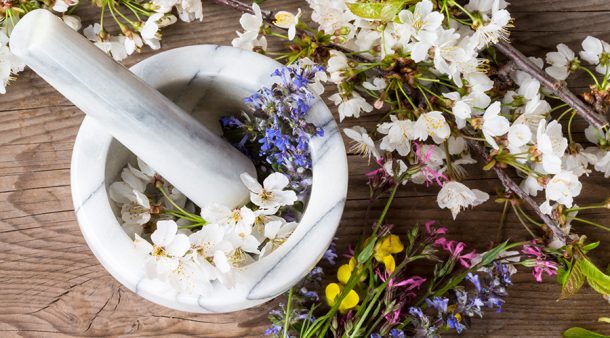
Understanding Insomnia: Causes, Risks, and Holistic Approaches
Insomnia affects a significant portion of adults, with 10-15% of people visiting their general practitioners for chronic sleep issues. Insomnia manifests in three primary forms: difficulty falling asleep (sleep latency), frequent waking during the night, and early morning waking, often associated with depression. Addressing insomnia holistically can improve sleep quality without relying on prescription sleeping pills, which are not a long-term solution.
Causes of Insomnia
Insomnia can result from various factors, including lifestyle habits, medical conditions, psychological stressors, and even the body’s internal rhythms:
- Blood Sugar Imbalance: Hypoglycemia (low blood sugar) or diabetes can disrupt sleep patterns. Those prone to low blood sugar should consume a complex carbohydrate snack before bedtime to stabilize levels. Conversely, individuals with diabetes should work with their doctor to manage high blood sugar, which can also interfere with sleep.
- Hormonal Fluctuations: Hormones play a vital role in sleep regulation. For example, melatonin, produced by the pineal gland, helps regulate the sleep-wake cycle. Imbalances in cortisol due to stress can lead to difficulty falling asleep or staying asleep. Women, in particular, may experience sleep disruptions during menstrual cycles, pregnancy, or menopause due to hormonal changes.
- Stress and Anxiety: Daily stressors, whether from work, personal life, or internal conflicts, can lead to difficulty sleeping. Chronic stress increases the production of cortisol, an adrenal hormone that disrupts sleep patterns. Techniques such as deep breathing, visualization, and regular exercise can help manage stress, thereby promoting better sleep.
- Disrupted Circadian Rhythms: According to Traditional Chinese Medicine (TCM), the body’s internal clock, or Horary Clock, follows a 24-hour cycle, with specific organs linked to different times of the day. Insomnia can indicate imbalances in the organ systems related to the time you experience sleep disturbances. For instance, waking between 1-3 a.m. may suggest liver imbalances, often associated with emotions like anger and frustration.
Insomnia and TCM: The Role of Emotions and Organ Systems
In TCM, insomnia is often linked to the disharmony of the heart, liver, and kidneys. Each organ correlates with specific emotions and times of day on the Horary Clock:
- Heart (11 a.m. – 1 p.m.): The heart is considered the seat of the mind (Shen) in TCM. Insomnia, especially with difficulty falling asleep, may be due to a disturbed Shen. Emotional disturbances like anxiety and excessive thinking can disrupt the heart’s function, causing insomnia.
- Liver (1 a.m. – 3 a.m.): The liver governs the free flow of Qi and emotions. Waking up consistently between 1-3 a.m. can indicate liver Qi stagnation, often linked to suppressed anger, stress, and frustration. Addressing liver health through dietary choices and stress management can help restore balance.
- Kidneys (5 p.m. – 7 p.m.): The kidneys store the body’s vital energy (Jing) and are related to fear. Chronic insomnia and frequent waking can deplete kidney energy, leading to fatigue and stress. Strengthening the kidneys through diet and lifestyle practices can support more restful sleep.
Dietary Considerations for Better Sleep
Diet plays a vital role in promoting restful sleep:
- Avoid Stimulants: Eliminate or reduce caffeine, chocolate, soda, and coffee, especially before bed. Stimulants can interfere with sleep onset and quality. Foods high in tyrosine (e.g., bacon, cheese, wine) increase brain activity, making it harder to fall asleep.
- Incorporate Tryptophan-Rich Foods: Foods like bananas, milk, turkey, tuna, and yogurt contain tryptophan, an amino acid that promotes sleep. Consuming these in the evening can encourage melatonin production, aiding sleep.
- Alleviate Liver Qi Stagnation: According to TCM, supporting liver function can help with sleep issues related to the liver. Include liver-friendly foods like leafy greens, bitter herbs, and cruciferous vegetables to help detoxify the liver and balance emotions.
- Hydrate and Balance Nutrition: Proper hydration and balanced nutrition, including adequate vitamins and minerals, can support the body’s natural sleep processes. Deficiencies in nutrients like magnesium and B-complex vitamins can contribute to insomnia and should be addressed through diet.
Lifestyle Adjustments and Sleep Hygiene
Incorporating holistic lifestyle changes can significantly improve sleep quality:
- Regular Exercise: Engaging in physical activity a few hours before bed helps balance stressors, including adrenal stress, contributing to insomnia. Exercise also supports the liver and heart in TCM, promoting the free flow of Qi and calming the mind.
- Create a Relaxing Bedtime Routine: Activities like taking a warm bath, practicing aromatherapy, or listening to soft music signal the body that it’s time to wind down. Lavender, an essential oil known for its calming properties, can be diffused in the bedroom to create a serene environment.
- Manage Stress and Emotions: Since emotions like anger, worry, and fear can disturb sleep, incorporating stress management techniques such as yoga, meditation, or deep breathing exercises is essential. These practices help balance the heart and liver energies in TCM, promoting emotional stability and restful sleep.
- Optimize Sleep Environment: Keep the bedroom cool, quiet, and dark. A comfortable, inviting sleeping space encourages relaxation and signals the brain that it’s time to sleep.
Conclusion
Insomnia, whether due to physical, emotional, or environmental factors, requires a multifaceted approach for effective management. By understanding the role of diet, stress, organ systems, and emotions in sleep health, individuals can take proactive steps to restore their natural sleep patterns. Holistic practices such as TCM, dietary adjustments, stress management, and lifestyle modifications offer a comprehensive path to achieving restful, rejuvenating sleep.


